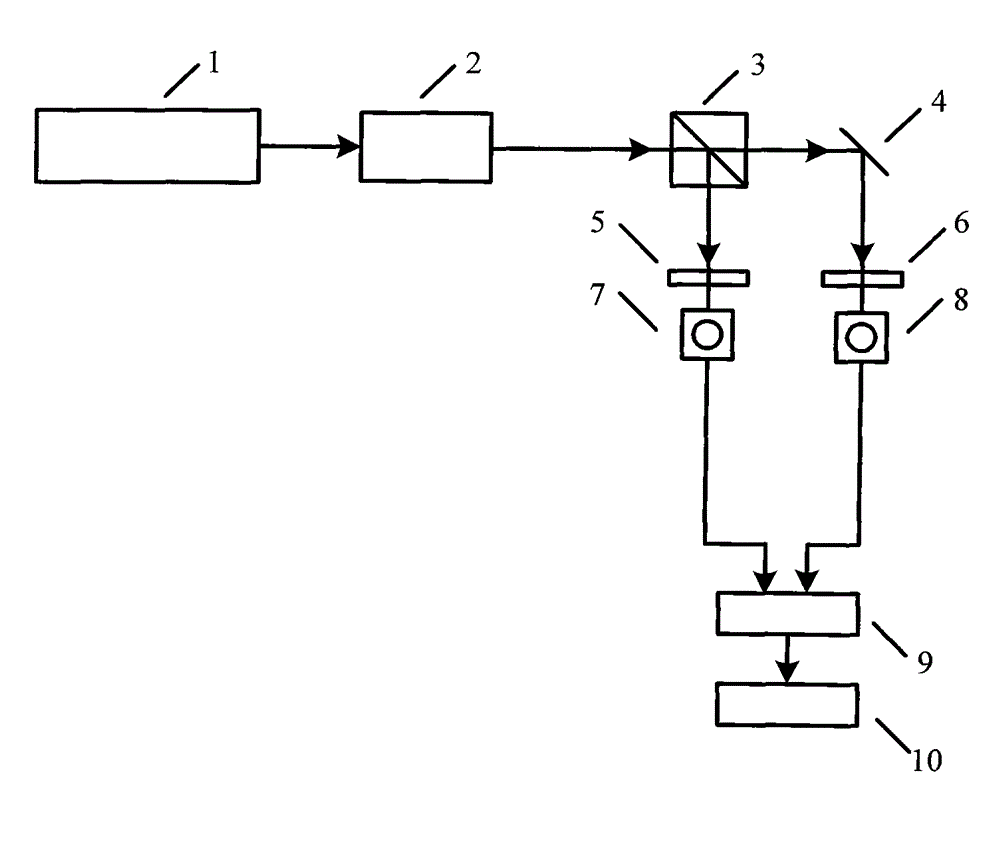Time Stability Test Method of Photoelectric Receiver Based on Dual Acousto-optic Frequency Shifting
A photoelectric receiver and stability testing technology, applied in the field of laser applications, can solve the problem of not actually testing the time stability of the photoelectric receiver, the influence of the time stability of the photoelectric receiver, and the calibration that affects the stability of the working time of the heterodyne interference system, etc. question
- Summary
- Abstract
- Description
- Claims
- Application Information
AI Technical Summary
Problems solved by technology
Method used
Image
Examples
Embodiment Construction
[0022] The examples of the present invention will be described in detail below in conjunction with the accompanying drawings.
[0023] A method for testing the temporal stability of a photoelectric receiver based on double acousto-optic frequency shifting, the steps of the method are as follows:
[0024] (1) The single-frequency laser 1 emits a beam of laser light, which becomes a beam of dual-frequency laser beams after passing through the dual-acousto-optic frequency shifter 2, including the frequencies v 1 and v 2 , the polarization directions are mutually orthogonal linearly polarized light in the horizontal direction and the vertical direction respectively, the dual-frequency laser beam is divided into a reference beam a and a measurement beam b after passing through the unpolarized beam splitter 3, and the reference beam a and the measurement beam b both contain the frequency v 1 and frequency v 2 The orthogonal linearly polarized light;
[0025] (2) The reference be...
PUM
 Login to View More
Login to View More Abstract
Description
Claims
Application Information
 Login to View More
Login to View More - R&D
- Intellectual Property
- Life Sciences
- Materials
- Tech Scout
- Unparalleled Data Quality
- Higher Quality Content
- 60% Fewer Hallucinations
Browse by: Latest US Patents, China's latest patents, Technical Efficacy Thesaurus, Application Domain, Technology Topic, Popular Technical Reports.
© 2025 PatSnap. All rights reserved.Legal|Privacy policy|Modern Slavery Act Transparency Statement|Sitemap|About US| Contact US: help@patsnap.com

